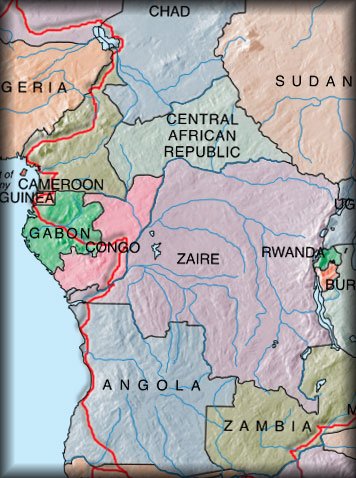
 meals – food cost me average 3.3 € per day. There is no more, so popular in Sahel, purified water in small plastic bags, instead you could buy 1.5 liter bottled water for about 500 CFA. When you buy the lunch in the smaller villages you should watch out for the meat, because that could be infected wild game. Most of cows, pigs etc. were killed during the wars or died after the sickness (like bite from tsetse fly).
meals – food cost me average 3.3 € per day. There is no more, so popular in Sahel, purified water in small plastic bags, instead you could buy 1.5 liter bottled water for about 500 CFA. When you buy the lunch in the smaller villages you should watch out for the meat, because that could be infected wild game. Most of cows, pigs etc. were killed during the wars or died after the sickness (like bite from tsetse fly).
internet - even in larger cities the internet is not easy to find, and if you do, it is not cheap.
Chad – in Ndjamena cost more than 1,000 CFA per hour.
In Cameroon is easy and cheap access, 200 CFA/h, but there are frequent electricity cuts.
Equatorial Guinea – in Bata, M-internet business center, the roundabout next to the town hall (Ayuntamiento) and the Gabon Consulate and the second one near the western side of the cathedral. Price 1,000 CFA per hour.
Gabon – I did not find the internet cafe, even in Franceville. Missionaries recommend internet in hypermarket M'bolo in Libreville, quick connection for 1,000 CFA per hour.
Congo – in Brazzaville we found Celtel Internet Cyber Cafe on the west side of Av. de la Paix between Av. de France and Av. de Trois, 500 CFA for 45 min or 1,000 CFA for 100 min.
DRC – I’ve seen only in the Kisantu village.
Angola – in Luanda on the Rue Rainha there is Jing Internet, charging 250 K per hour. At the main post office internet also can be used. Much worse was in Lubango, where prices have already reached 360 K per hour, and worked very slowly.
 weather - north of the Equator, you can expect the existence of two rainy seasons: high from March to May and low from September to December. The main dry season is between June and September, low in January-February. In contrast, south of the Equator rainy season occurs from November to March, and dry from April to October. Remember that the rainy season is not just a problem to get wet, but especially a problem with transport, particularly where is unpaved surface.
weather - north of the Equator, you can expect the existence of two rainy seasons: high from March to May and low from September to December. The main dry season is between June and September, low in January-February. In contrast, south of the Equator rainy season occurs from November to March, and dry from April to October. Remember that the rainy season is not just a problem to get wet, but especially a problem with transport, particularly where is unpaved surface.
money - we were still in the French postcolonial monetary union zone (CFA), which is in constant relation with Euro 665:1. This is in theory, in practice banks offer 650 CFA for Western African Franc (international code XOF) and 660 CFA for Central African Franc (international code XAF). That means there is a relation almost 1:1, but will be easier to exchange with no commission Western to Central Franc than vice versa. For a few months we had easier life – didn’t have to worry exchanging currency at each border crossing, as well we had much quicker orientation in the cost situation in a new country. Western African Franc you can use in 8 countries (Senegal, Guinea Bissau, Mali, Burkina Faso, Ivory Coast, Togo, Benin and Niger), and Central African Franc you can use in 6 countries (Chad, Cameroon, Equatorial Guinea, Gabon, Congo Brazzaville and the Central African Republic). In Central Africa Euro is slowly losing its importance, while the U.S. Dollar is gaining more. Larger denominations notes are selling in better rate.